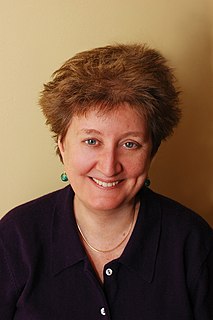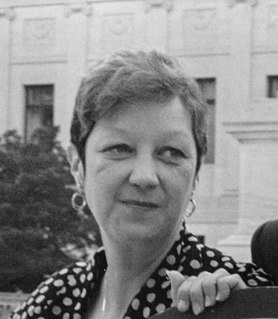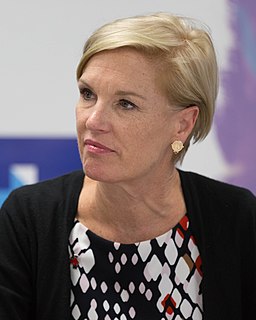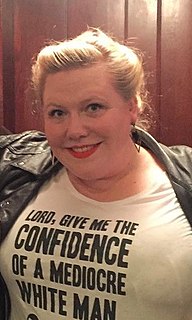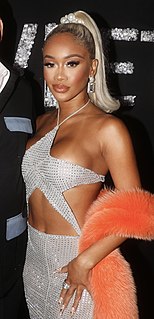A Quote by Katha Pollitt
I put out a call on Twitter and Facebook and email for women to tell me their stories about their abortions. And many women said, 'I told my boyfriend I was pregnant, and that was the last I ever heard of them.'
Related Quotes
I don't think that there's a target audience at all. These stories were in circulation. The stories were told by men, told in the marketplace by men, but also behind doors by women, but there's no real record of this. It's likely they were told by women to children in their interior rooms. The story could be a negative story, they could be presented as a, "Watch out! Women will get round you, do things to you, weave you in their toils." It could be buried in it an old cautionary story about women and their wiles.
We need more female directors, we also need men to step up and identify with female characters and stories about women. We don't want to create a ghetto where women have to do movies about women. To assume stories about women need to be told by a woman isn't necessarily true, just as stories about men don't need a male director.
Ranger is an unusual name," she managed. "Is it a nickname?" It's a street name," Ranger said. "I was a Ranger in the army." I heard about them Rangers on TV," Grandma said. "I heard they get dogs pregnant." My father's mouth dropped open and a piece of ham fell out. My mother froze, her fork poised in midair. That's sort of a joke," I told Grandma. "Rangers don't get dogs pregnant in real life." I looked at Ranger for corroboration and got another smile.
The Grimm brothers always said that their informants were women, which is possibly not true, women of the people. There is the constant evocation of women's voices, in the collecting and arrangement of these stories, and yet the message of so many of them is incredibly misogynist. I was very puzzled by that, and that book explores that contradiction.
At the beginning of my career, a more senior photographer told me to shoot stories on women and I didn't want to. But I spent two and a half years in India and chose to do stories about women because I was shocked by their treatment. My stories in the Middle East and on the border of Europe and Asia were a response to my time in India. They weren't driven by a feminist idea but when you're moved by women's issues in these countries you can't help becoming a feminist somehow.
There were others, women with stories that were told in a quieter voice: women who hid Jewish children in their homes, putting themselves directly in harm's way to save others. Too many of them paid a terrible, unimaginable price for their heroism. And like so many women in wartime, they were largely forgotten after the war's end.There were no parades for them, very few medals, and almost no mention in the history books.
There are women who live in U.S. with maybe one abortion clinic. The right wing is trying to make it impossible for women to get abortions, even if they are technically legal. This is done in a literal way? - ?you can't get to a clinic, you can't afford it, you have to tell your parents? - ? and by making it something that young people feel they can't talk about, can't ask for help with, can't do anything about but try to either induce abortions on their own, alone and unsafely, or have children they don't want and can't care for. It's just an assault on all sides.
Women and our right to choose were going to be challenged with Ashcroft around. When Bush appointed Ashcroft, I went out and got me four abortions. I stocked up. The doctor was like, "Listen, you're not pregnant." I said, "Hey, just shut up and do your job. I'm exercising my right while I can, dammit.
Marjan. I have told him tales of good women and bad women, strong women and weak women, shy women and bold women, clever women and stupid women, honest women and women who betray. I'm hoping that, by living inside their skins while he hears their stories, he'll understand over time that women are not all this way or that way. I'm hoping he'll look at women as he does at men-that you must judge each of us on her own merits, and not condemn us or exalt us only because we belong to a particular sex.
